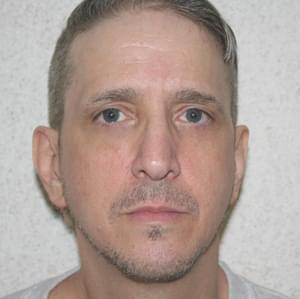A recent op-ed by Theodore Shaw, president and director-counsel of the NAACP Legal Defense and Educational Fund, urged a full and fair investigation into the case of Ruben Cantu, a Texas man who may have been innocent of the murder for which he was executed in 1993. Shaw noted that Cantu’s case was “fraught with systemic errors,” including the fact that his conviction was based on a single eyewitness identification by a man who has said he was pressured by police. Shaw praised the work of the Houston Chronicle, which investigated Cantu’s case last year and published a series of stories about his possible innocence. He also stated that Texas must take a closer look at Cantu’s case to “avoid terrible mistakes in the future.” Shaw stated that the NAACP Legal Defense and Educational Fund hopes that their efforts to publicly post materials that first interested the group in Cantu’s case, and also prompted them to contact the Chronicle, will spark a further inquiry by the state. Shaw wrote:
DURING my 24 years as a staff lawyer and now as president and director-counsel of the NAACP Legal Defense and Educational Fund, I have worked on many cases. Our job is to confront injustice, so we see a lot of the legal system at its worst, in Texas and across the country. But we also often see the legal system at its best. Over the years, I have developed a high regard for the legal institutions of the state of Texas when they operate at their best.
We saw the worst in Tulia, where several dozen poor African-American defendants were sentenced to long terms in prison in 1999 on the basis of the uncorroborated word of a single undercover narcotics officer. Our organization took their cases and discovered that the officer had fabricated the evidence, lied in court and caused the convictions of innocent people.
While a remedy to the injustices in Tulia did not come swiftly or easily, the Texas legal system ultimately worked to correct those mistakes. The Texas Court of Criminal Appeals appointed a respected retired judge from a different county to handle the cases; that judge concluded that the convictions were based on perjury and recommended that they be reversed; the Legislature unanimously passed special legislation to permit the immediate release of those who were still in prison; and in August 2003, Gov. Rick Perry pardoned 35 Tulia defendants.
We may be seeing the worst of the Texas legal system again, but this time in a case in which the stakes were life or death. After the Tulia cases, the Legal Defense Fund undertook an investigation into the possibility that Ruben Cantu, who was sentenced to death in San Antonio in 1984, was innocent of the murder for which he was executed in 1993. Once we started looking into the case, we were immediately troubled by what we found.
The Cantu prosecution was fraught with systemic errors. Perhaps most egregious was the fact that Cantu was convicted on the basis of a single eyewitness identification, which was given under tremendous pressure from police (according to the eyewitness) and which was subsequently recanted. Mistaken eyewitness identification is the leading cause of wrongful conviction in this country. In some cases, mistaken convictions are revealed by DNA or other forensic evidence, but unfortunately for Cantu, none was available in his case.
The Legal Defense Fund has investigated potential wrongful executions in a few other cases. But uncovering the real facts in these cases is extremely difficult and costly. In one case, that of Larry Griffin in St. Louis, Mo., we had the assistance of a Chicago law firm, with whose generous help we completed the investigation to our satisfaction, and presented the chief prosecutor, the Circuit Attorney for the City of St. Louis, with persuasive evidence that Griffin was in fact innocent of the murder for which he was executed.
In the Cantu case, despite a substantial commitment of resources, more work remained to be done. We shared the information we had with independent journalists at the Houston Chronicle. After reviewing our information they decided that the case merited full investigation. They did an award-winning job of pursuing the investigation and published their findings in a series of articles last November. Their stories revealed strong new evidence of Cantu’s innocence.
The Houston Chronicle looked into this case to determine whether a man executed by the state was innocent. Compelling evidence that they uncovered suggests that he was. Whether this is true, and, if so, how such a miscarriage of justice could have occurred are questions that must be addressed in an open and unbiased investigation by an appropriate arm of the state government. Unfortunately, to date, the state has responded mostly by issuing or threatening unwarranted subpoenas, including to the newspaper itself.
We don’t think this course of action helps answer the questions at hand. In order to focus the inquiry back where it belongs, we are posting on our Web site (www.naacpldf.org/) the materials that first interested us in the case and prompted our discussion with the Houston Chronicle, so they are available to all who are interested. We hope this access to information opens up the dialogue and sparks a full, fair and serious investigation into this case.
The NAACP Legal Defense Fund is opposed to capital punishment. We came to that position in the 1960s, in large part because of the long history of racism in the use of the death penalty against African-Americans and other minorities. However, our position on capital punishment is not at issue in the Cantu case. Whatever one’s views on the death penalty, no American favors executing innocent people. That is the issue here.
To avoid terrible mistakes in the future, we must face up to the mistakes we may have made in the past — as the state of Texas did in Tulia — without fear of what we may find.
Houston Chronicle (May 11, 2006). See Innocence and Editorials.




